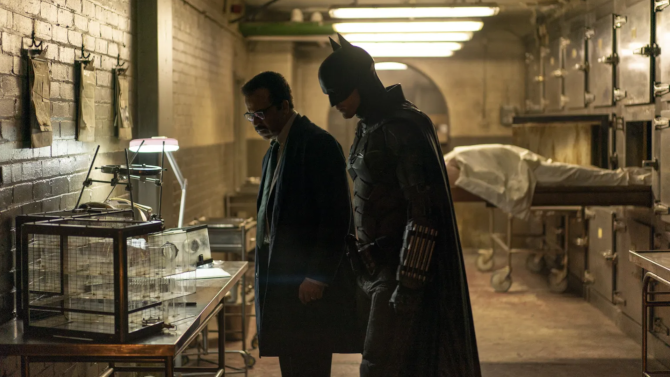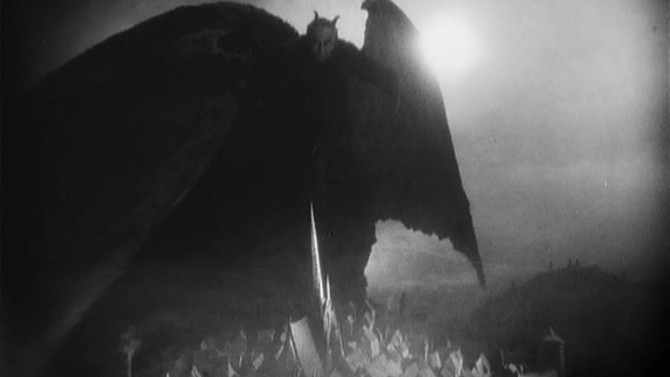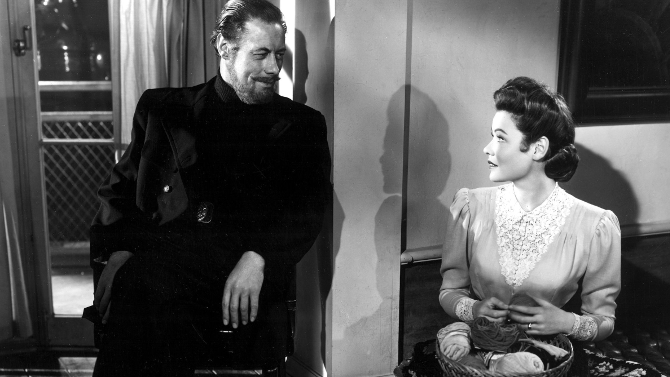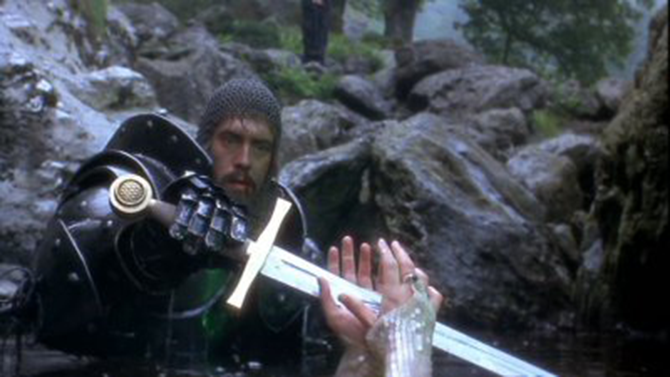
Batman – Vengeance Style
Hanging around in the much darker side of the cave, The Batman (2022), co-written and directed by Matt Reeves, follows in the same playing card suit as the 2019 psychological thriller Joker, further showing off the more dilapidated, delinquent strewn streets of Gotham and its equally as sinister and Machiavellian criminals/political landscape. Feeling a tad closer to an Indie produced marauding neo-noir than your prototypical comic book movie, this iteration of the Caped Crusader is not your more traditional Bruce Wayne/Batman (Robert Pattinson – Tenet; The Lighthouse), in fact
-
Star Pick with Rudolf Schenker
 Fly Me to the MoonAvatarOctober 25, 2016
Fly Me to the MoonAvatarOctober 25, 2016Soon after Avatar’s release, it became evident that it was not only a movie – it was a worldwide phenomenon that was bringing people together, getting young and old to sit in darkened cinemas for over two hours and forty minutes (promptly making it the highest grossing film of all-time – ending just shy of 2.8 billion dollars). The creative piece of world building, with its vivid, alien landscape and intoxicating mythology (while also ushering 3-D back into the cinematic limelight), also caught the eye of Rudolf Schenker, a founding member (and guitar-god) of the iconic German hard rock band The Scorpions. A master song-writer, the man has concocted numerous classic rock tunes, with catchy riffs, iconic lyrics and impressive solo work. Sharing solo and rhythm duties with co-guitarist Matthias Jabs, Schenker and the band have become known for their unforgettable, high-octane, crowd-pleasing live performances.
-

Soul Survivor?
FaustOctober 16, 2016Iconic German director F.W. Murnau is often considered to be one of the most influential filmmakers of the silent film era. Creating the first ever vampire movie, Nosferatu (a perfect example of German Expressionism) in 1922 and Sunrise (sometimes considered to be the best silent film drama of all-time – and the first motion picture he made in America) in 1927, a perhaps slightly lesser known movie (of his) that is equally as impressive is 1926's Faust: A German Folk Legend. Revolving around the age old struggle of good versus evil, the tale begins with the demon Mephisto (Emil Jannings) debating with an Archangel (Werner Fuetterer) about the nature of human beings. The agent of darkness believes that he will be able to corrupt the righteous, wise old sage Faust (Gösta Ekman). The two agree that, if Mephisto succeeds, the Devil will be given rule over the Earth.
-

Czech Please
Valerie and Her Week of WondersAugust 2, 2016Considered one of the great films of the Czech New-Wave, Valerie and Her Week of Wonders takes the viewer on an unorthodox nonlinear journey through a bizarre, sensual, dream-like fantasy world where the lead character, Valerie (Jaroslava Schallerová), is just budding into womanhood. Seen through the eyes of the impressionable, pure, and innocent ingenue, we are not sure if what we are seeing is, in fact, reality, or whether it is dream (or perhaps more accurately – nightmare), or projections of what coming into adulthood is like, or some mixture of them all.
-
Star Pick with G.J. Echternkamp
 Ship of FoolsTime BanditsMay 31, 2016
Ship of FoolsTime BanditsMay 31, 2016Hollywood studios have long used focus groups as a way to determine if audiences like a film. And, for just as long as they’ve been around, there have been complaints about them: ‘Who are the people who comprise the focus groups?’, ‘Do they have any insider movie knowledge?’, ‘Why are they more knowledgeable than the screenwriters and directors who have made the film?’, "Why are studios changing the ending of a movie just because a few random people disliked it?’.
-

A Haunting Love Affair
The Ghost and Mrs. MuirMarch 22, 2016Every once and a while, a writer devises a ghost story that is not mere horror or thriller, but expands the eerie vibe to a more intimate otherworldly friendship or romance. Two of my favourites are the oddball buddy comedy Blackbeard’s Ghost (released by Disney in 1968) as well as the 1990 romantic dramedy simply titled Ghost. I now have a third excellent film to add to this rather abstract list – the 1947 motion picture The Ghost and Mrs. Muir.
-

King Arthur Tale Told in All of its Glory
ExcaliburAugust 14, 2013There have been many attempts at turning the King Arthur legend into film – from bloated action tales and Cold War bewilderment (where the villains wear Soviet Union red outfits), to animated Disney classics, but the movie that best captures the true essence of the historic tale is the 1981 John Boorman (Deliverance) epic Excalibur.

